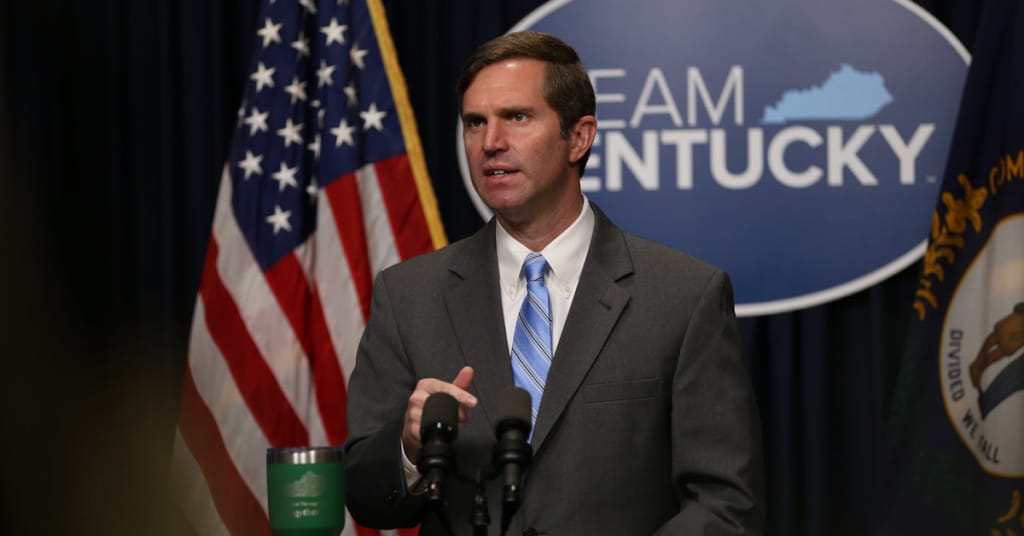Gov. Andy Beshear vetoed several parts of the new two-year Kentucky budget recently passed by the Republican-led legislature, but also praised the bill’s investments in broadband, water infrastructure and raises for state workers.
The Democratic governor rejected 22 sections of the budget bill, vetoing technical errors as well as parts that would have provided raises to statewide elected officials like the governor, attorney general, secretary of state and others.
He also nixed language that would give more power to other offices, like the attorney general, as part of the legislature’s efforts to weaken the governor and empower offices currently held by Republicans.
Most, if not all, the vetoes are expected to be overridden by lawmakers on the final two days of this year’s legislative session on Wednesday and Thursday of this week.

But during a news conference Monday, Beshear criticized lawmakers for not spending enough of the state’s recent financial windfalls, as he had proposed earlier this year.
“This is a better budget than we’ve had in a while, I’m just disappointed it didn’t meet the moment with K-12 and with universal pre-K and with raises for teachers,” Beshear said.
Kentucky had a $1.1 billion budget surplus last year because state revenue outpaced predictions, and is projected to have a multi-billion-dollar surplus at the end of the current fiscal year this summer. The state is also slated to receive billions of dollars more from the federal infrastructure bill and American Rescue Plan Act.
Though Beshear and Republican leaders of the legislature agreed on many elements, like an across-the-board 8% raise for state workers and funding all-day kindergarten, the governor wants the budget to go further, calling for universal pre-kindergarten and guaranteed raises for teachers.
Lawmakers instead decided to not spend a little more than a billion dollars available to the state and give that money back to taxpayers in the form of a permanent income tax break, which Beshear vetoed last week. That plan, which will reduce the state’s 5% income tax to 4.5% in 2023 and create a path for it to be lowered even further, will cost Kentucky about $1.4 billion over the next two years.
As for education funding and teacher raises, the Republican-penned budget fully funds kindergarten for two years, freeing up funding for local school districts. It also modestly increases the school funding formula known as SEEK, from $4,000 per pupil this year to $4,100 in 2023 and $4,200 in 2024. Republicans say it’s up to local districts to decide if they want to give their own teachers a raise.
In response to Beshear’s vetoes, Republican Party of Kentucky Communications Director Sean Southard criticized what he characterized as the governor’s lack of engagement with legislative leaders on budget discussions.
“He never walked down the hall to speak with the House or Senate leadership. Instead, he chided them from the briefing room. Thanks to strong Republican leadership, this budget makes investments in all day Kindergarten, fully funds pensions, and provides historic funding to school districts, empowering them to make local decisions about staff salaries,” Southard said.
Beshear disputed the characterization, and called out Republicans for breaking with tradition and unveiling their spending plan ahead of the governor’s budget address earlier this year. He said lawmakers don’t read the bills they pass.
“That’s what happens when you pass a hundred bills in a day and most people haven’t read one of them,” Beshear said. “My hope is that they’ll sit down and read the vetoes and not simply say, ‘We’re from a different party’ or ‘We’ll show the governor.’”
It only takes a majority of votes in each chamber of the legislature to override a Kentucky governor’s veto and lawmakers relish the opportunity to do so. Even when Republican Gov. Matt Bevin was in office, the GOP-led legislature consistently overrode his vetoes.






